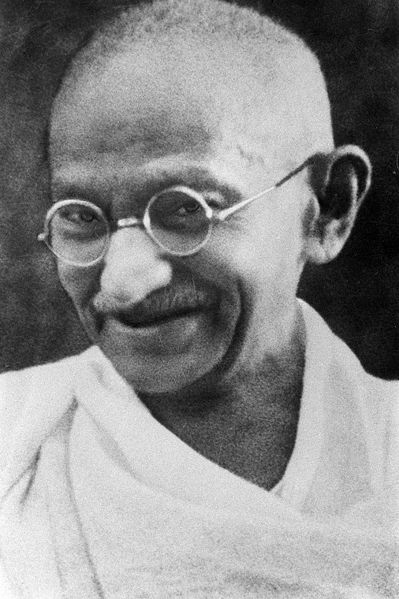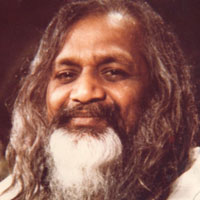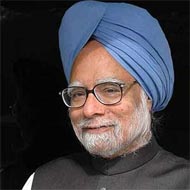5 Indians Who Have Influenced YOUR Life
For much of history, India was one of the most significant nations in the world. Then for a few centuries it became a pawn of another nation, having little impact beyond its importance to its Imperial Masters. In the last century, Indians have again began to influence the world beyond their borders. Today, I will touch on just 5 of them who have the most relevance to today's world. In 200 years their names may be forgotten. But today, they are the most Influential Indians in the world.
Everyone will have their own opinion on this, but I have selected the 5 Indians who have most influenced the Western World, as part of my ongoing project to look at the links between India and Britain. They have affected areas including popular culture, sport, spirituality and international politics.
1. Sachin Tendulkar. Sportsman.
Sachin Tendulkar is, without doubt, the finest cricketing batsman of his generation. The "Little Master" made his international cricket debut at the tender age of 16 and was the first non-white person to play cricket for Yorkshire. He changed the way brands and sponsors interact with a sportsman and he has more batting records than any other player: he is the only person to score a double century in One Day Cricket; he was the first player to score more than 50 centuries in international cricket and is fast approaching his 100th; he has scored over 30,000 runs in international cricket and was the first to pass 17,000 ODI runs. Sachin Tendlukar has changed the way cricket it played and set new standards for any cricketer to aspire to. Matthew Hayden once said, "I have seen God. He bats at #4 for India."
2. Mahatma Gandhi. Political and Ideological Leader
Gandhi was the figurehead for the Indian Independence Movement during the time of the British Raj in India. Indeed, my own great-uncle was imprisoned with Gandhi during one of his regular arrests. He pioneered satyagraha; resistance to tyranny through mass civil disobedience, founded firmly in the Indian philosophy of ahimsa or total non-violence. Gandhi led nationwide campaigns to ease poverty, expand women's rights, build religious and ethnic amity, end untouchability, and increase economic self-reliance. Above all, he aimed to achieve Swaraj or the independence of India from foreign domination.
Gandhi influenced important leaders and political movements. Leaders of the civil rights movement in the United States, including Martin Luther King, drew from the writings of Gandhi in the development of their own theories about non-violence. Anti-apartheid activist and former President of South Africa, Nelson Mandela, was inspired by Gandhi. Today, nearly any discussion of non-violent resistance will reference Gandhi
3. Maharishi Mahesh Yogi. Spiritual Guru
This Indian has had a huge and subtle effect on British culture. Whilst he certainly wasn't the founder of the Hippy movement, he was the catalyst for it go "viral". Known as the "giggling guru" he developed Transcendental Meditation in the late 50s and went on a global tour to spread it as an idea in 1958.
in 1967 he became "spiritual advisor" to the Beatles. They travelled to Rishikesh in February 1968 to fully immerse themselves in his instruction. Whilst their departure was mired in disagreement and accusations, the month and a half they were there was one of the most productive periods of their career, during which they wrote nearly all the songs that later appeared on both the White Album and Abbey Road.
The biggest influence of that trip was on the youth of the West: the Hippies and "Kids" who travelled overland to "spiritual destinations." After their heroes had been there, Rishikesh quickly became the Hippies' number one destination and it spawned a backpacking culture which continues to this day. The returning wanderers brought back ideas of meditation, yoga, spirituality and astrology that pervade Western culture today and drives a new generation of tourists, culminating in the "Eat, Pray, Love" soul-searchers.
4. Muhammad Ali Jinnah
A contemporary of Nehru and Gandhi, Jinnah represented the Muslim League in the period leading up to Independence from British Rule and became the founder of Pakistan. He fought strongly for an independent Islamic nation in the period preceding Independence. The result: the division of India along religious lines; the formation of Pakistan and Bangladesh; and the terrible violence of Partition. The economic and civil difficulties which followed resulted in many Punjabis and Bangladeshis migrating to Britain, resulting in significant British Asian communities.
Many analysts believe that were it not for Jinnah, India would have stayed united, as Gandhi and Nehru hoped. The current problems involving the Taliban in Afghanistan were partly a product of Pakistan's military dictators. A great deal of regional instability and exported terrorism stems from Pakistan. It is feasible that this would not be such a problem if India had stayed as one country. But were it not for Jinnah, it is also likely that there would not be so many Indians, Pakistanis and Bangladeshis in England. And, therefore, possibly not my father and probably not me!
5. Manmohan Singh
India's soft-spoken and efficient 14th Prime Minister may seem an odd choice. But it was his policies as Finance Minister in the 90s that threw off India's shackles of bureaucracy and allowed India to come roaring into the 21st Century as the world's most economically exciting nation. He oversaw the end of the Licence Raj, which allowed enormous levels of corruption, encouraged huge inefficiency, impaired entrepreneurship and prevented foreign investment in India. As Foreign Minister and then Prime Minister, he has strengthened ties with Europe, Britain and America (as Obama's and Cameron's recent visits show). He has worked to build peace with Pakistan, but on the other hand oversaw the Indo-US Nuclear agreement, which gave India access to American nuclear technology.
His trade, finance, foreign and defence policies have helped India step out of the shadow of its Imperial past and onto the world stage. India will be one of the most important nations in this century: strategically and economically. Dr Singh is the man most responsible for that.




